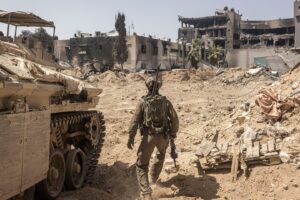You are not Forgotten.
Berlin, Brussels (16/5 – 40)
In the vast and remote mountain lands of Central Asia, the Ismaili Pamiris have long faced systemic discrimination and persecution at the hands of the Tajik government. Despite their proud history, rich cultural traditions, and highly educated populace, they have been targeted for cultural extermination in a chilling campaign of ethnic cleansing. Tajikistan President Imomali Rahmon has demonized them as “inbred” and “criminals” and launched a brutal program to replace their community with ethnic Tajiks. In May and June 2022, the government launched a final assault on the Pamiris to end their autonomy and bring them under the total control of the state. Heavily armed security forces rampaged into the town of Vamar, where protestors calling for respect for human rights had peacefully blocked the Pamiri Highway. There and in other towns of the Gorno-Badakhshan region (GBAO), protestors and passers-by were shot dead, maimed, and taken to prisons to be tortured and degraded. Khovar Gulobshoev was one of the innocent victims that was killed.
Khovar was born on June 1, 1977 in the village of Derzud, Rushan district in Tajikistan. After military service, he stayed in the village for several more years but decided like millions of other Tajiks to seek work in Russia. Khovar got married in Moscow and had two children. His relatives said that he worked in Russia for many years and had only recently returned to Tajikistan with his family.
“He was not a member of any terrorist group. He was in Vamar during the crackdown by security forces and was killed,” said his relatives.

Khovar was interested in sports since his school days and spent most of his time in the village gym. He was highly respected among the residents of Rushan district, especially among the youths. He paid great attention to the education and work of the younger generation. He always tried to attract the young people to sports and other activities as much as possible and to keep them away from inappropriate activities. He built a boxing field for children and teenagers in front of his father’s house. Every day, a large number of youths trained on this field and they took part in village and district competitions and won top placings.









